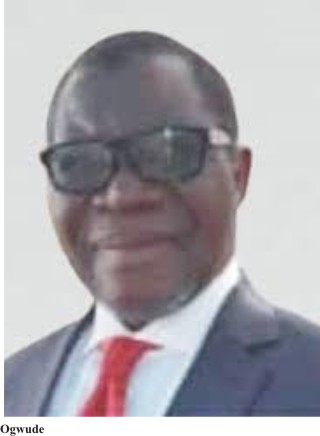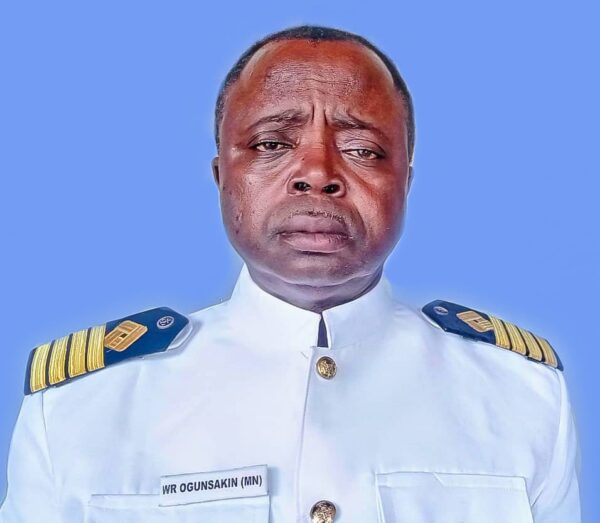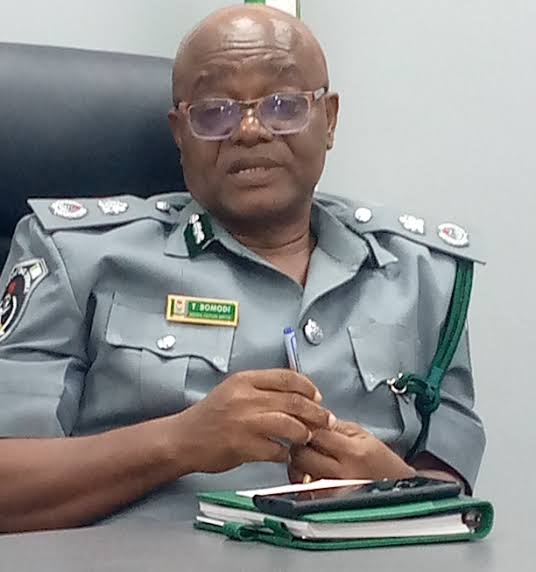Nigeria Has Numerous Transport Regulations, But Weak Institutions – Ogwude
By Kenneth Jukpor
Prof. Innocent Ogwude is a former Acting Vice Chancellor of the Federal University of Technology, Owerri (FUTO). He presented the lead paper at the 3rd National Transport Summit organized by the Chartered Institute of Transport Administration (CIoTA) Nigeria, in Abuja, last month. In this exclusive interview with MMS Plus, Ogwude gives a robust analysis of Nigeria’s transportation sector. He proffers strategies to enable the nation attain hub status in various sub-sectors of transport in West and Central Africa; evaluates Nigeria’s Public-Private Partnership (PPP) approach and its shortcomings, assesses the pros and cons of the proposed Nigeria Air, and other pertinent transport sector issues.
Enjoy it:
In your paper, you underscored the need for Nigeria to have transport infrastructures and regulations that reflect the nation’s aspiration to be a hub in West and Central Africa. Can you expound this?
The summit is about transport regulation in Nigeria. How we are practicing it now, which we refers to as the state-of-the-art, and what to expect in the future. We chose this as the theme because it is very important that the transportation sector is well regulated. Regulatory compliance leads to good management. If people comply with regulations we will be able to have good governance in the transport sector.
When we talk about management in the transport sector, people confuse it with the small management that is related to the business industry, but that’s not so. Most of the work done in the transport sector is actually management and this includes planning as well.
Presently, the regulation of transportation is weak in Nigeria and it’s not because the laws aren’t there or the regulators aren’t there. The problem is that there are many fragmented laws and bodies doing the regulation. We need strong institutions that can implement the existing regulations in this sector because the existing ones are weak.
It is this move to attain strong institutions in the sector that led to the proposal that perhaps we should emulate the U.S transport model where they have an administration for every mode of transport. They have Maritime Administration, Rail/Road Administration, Aviation Administration, etc. Meanwhile, in Nigeria, there’s only one transport administration that is institutionalized and that is the Nigerian Maritime Administration and Safety Agency (NIMASA) and that’s not good enough.
All around the world, businesses thrive on Public-Private Partnerships (PPPs) and this is also the new strategy to boost infrastructure development. For the transport sector, does Nigeria have the right regulatory framework that would see PPP stimulate investments in infrastructure and assets?
PPP is the only way to go in Nigeria and the reason is that this is the way the world is going. This is the global best practice as there is more emphasis on increasing private sector participation in major investments or PPPs. However, PPP becomes necessary when competition in the sector is improved and this means that we create more market in the sector for private investors to exploit. Creating this market is another way of increasing investments because it implies that more private investors can participate.
In the past, we had the public sector dominate the transportation sector because transport is a public good. The sector was also seen as an unattractive business venture for transport investments because people could get more return on investment (RoI) by investing in other sectors. The funds required for transport infrastructure is very huge and that’s way there is said to be an indivisibility of transport investments while others say that transport investments is lumpy.
Today, we have reached a stage where we realize that we can unbundle some of the infrastructure so that individuals and companies can also take part in partnership with the government.
We have seen instances where private investors came in and a change in the government administration sees their licenses withdrawn. An investor in inland waterways jetty around Badore/Ijede spent almost 2 years in court with Lagos State government over the revocation of his 25years license but he won. Another investor and concessionaire of the Lagos International Trade Fair Complex, on Lagos Badagry expressway was booted out of the premises as the federal government withdrew his license. What do you make of such political interference in agreements entered for developing transport infrastructure?
There is need for PPPs in Nigeria, especially for developing transport infrastructure. Every government should try to encourage this by keeping faith. It isn’t a good thing for the government to suddenly change its mind or begin to nationalize what private individuals have invested in. Nevertheless, when such things happen, there will be need for tribunals and court cases.
I’m happy that in the case you mentioned, a tribunal or the court ruled in favour of an honest investor. There is no reason for an investor to be shortchanged or an investment cancelled, unless there is an infringement.
In the aviation sector, Nigeria is planning to concession some of the major airports and there are also plans to float a national carrier called ‘Nigeria Air’. What are your expectations on these investments?
This is the right thing to do. In fact, Nigeria has delayed a lot in carrying out this concession. The Federal Airports Authority of Nigeria (FAAN), which is the custodian of the nation’s airports, has been a monopoly for a very long time. Each airport is actually supposed to be autonomous and this is the practice in advanced countries like Britain. Gatwick, Heathrow, etc, are all autonomous airports.
Nigeria has been doing economic reforms in the transport sector. The nation has visited and unbundled theoretically the Nigerian Railway Corporation (NRC), seaports have been unbundled and the inland waterways is set for similar unbundling. FAAN was left unbundled over the years even though it was slated to be unbundled in the first schedule since 1999. So, it’s time to unbundle it. This means freeing the airports and allowing private sector nous and investments. The four most profitable airports are the ones that the concession is scheduled to begin with. These airports are attractive for investors.
The move to concession the airport further re-emphasizes Nigeria’s ambition to be an aviation hub in West and Central Africa. Nigeria is a natural leader in West and Central Africa. The nation wants to be the hub of aviation, maritime, railway and if possible highways if people could attribute hub status for highways. To achieve this status in any of the sub-sectors of transportation isn’t easy. The nation has to be the financial hub, administration hub, hub for bunkering via aviation fuel as well as the infrastructure. Being a hub means that all the necessary components would be available in the country.
It is this aspiration that drives the nation to have deep seaports. In aviation, Lagos and Abuja can be seen as a hub.
On the need to have a national carrier via an airline, the government has already decided that they would have the airline. I haven’t seen the business study on it to look at the cost benefit analysis. It’s a thing of pride to have an airline that carries Nigeria’s flag, especially for those of us who are slightly elderly and can recall the prestige of travelling to the U.S with Nigerian Airways. We were proud to be associated with the Nigerian National carrier but we know how it was mismanaged.
Poor management is the bane of the transport sector. So, if we can be sure that the Nigeria Air will be properly managed, it will be good development. The alternative thing is to choose one of the best private sector airlines as the national carrier. Nevertheless, the government has already committed to floating the Nigeria Air, so my appeal is that they should also be committed to getting a good management for the airline to manage it properly.
I learnt government’s stake in the investment is 5% while the private sector the rest, if that’s the case then it’s a PPP. If government initiates the Nigeria Air and sells shares, it’s still a public venture because the initial equity is from the government.
Some indigenous airline operators are scared of the emergence of Nigeria Air because some of them argue that the national carrier may introduce unfair advantages because of the federal government’s stake in the project. Do you corroborate these fears of airline operators?
The fear is justified. This is because most of the aviation travelers are government workers or public officials. If the government owns an airline, there is a tendency that the public servants are asked to patronize the government airline at the expense of others. However, this also comes with an associated problem because some of these officials may decide not to pay. Let’s hope this doesn’t happen because it was one of the factors that led to the demise of the Nigerian Airways.
We have to look at the ownership, control and management of the Nigeria Air because that’s what will determine its success. In a real business situation, the entrepreneurs and shareholders are responsible for deciding who manages the business. If this is the case, we can expect the Nigeria Air to operate like a private-driven entity and be truly successful. If the government decides make the appointment of the Chief Executive of the Nigeria Air as they would appoint the Chief Executive of Nigerian Ports Authority (NPA), then it will be doubtful that the airline will behave in a truly commercial way.
Airline business is actually a veritable enterprise that should be able to make profit, but somehow in Nigeria they don’t seem to be making profit. We can see that government often bails them out from fiscal challenges. This might even be the reason the government wants to float an airline, after all, they are bailing out the existing ones frequently.
It is also a challenge for those of us who are teachers and trainers to be able to teach people how to manage airline business profitably. We have always argued that people who should manage airlines should be properly trained in management. They should be trained in Financial Management, Economics, etc. They shouldn’t just be technical people. In Nigeria, retired pilots or former directors in the various aviation agencies are usually asked to head an airline, but they aren’t grounded in fiscal management.








